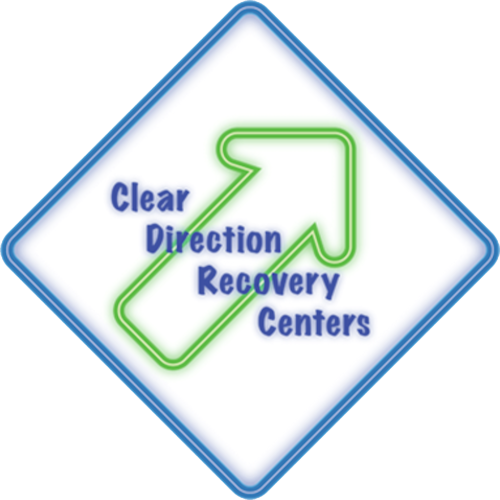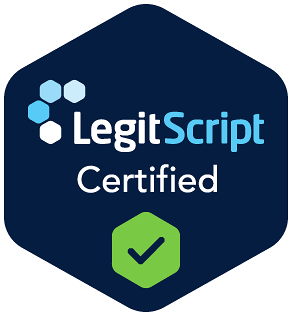Individual Therapy for Addiction Treatment in New Jersey
Addiction is a complex health condition that affects both the mind and body. Many people living with substance use disorders find that professional support makes a difference in their recovery process. Treatment for addiction often involves a combination of therapies, medical care, and ongoing support.
One approach used in addiction treatment is individual therapy. This method offers a private way for someone to address their challenges with the guidance of a trained professional. For those exploring their options, understanding how individual therapy works can clarify what to expect during treatment. At Clear Direction Recovery, we use individual therapy as part of our comprehensive approach to help adults reclaim their lives and achieve lasting recovery.
Individual therapy for addiction treatment involves one-on-one meetings between you and a therapist. Sessions are private, allowing you to speak openly about your experiences, thoughts, and feelings related to substance use.
Unlike group therapy, which includes multiple participants, individual therapy focuses on you alone. This setting offers more privacy and personalized attention, which many people find important when discussing sensitive issues.
Key characteristics of individual therapy for addiction treatment:
- Personalized approach: Sessions are adapted to your unique needs and situation
- Private setting: Conversations remain confidential between you and your therapist
- Focused attention: The therapist’s time and expertise are dedicated to you during each session

Why Choose Individual Therapy for Substance Abuse
Individual therapy for addiction treatment offers benefits that are specific to the recovery process. This approach helps you work on the root causes of substance use and develop strategies that fit your unique experiences.
One of the main ways individual therapy helps is by allowing you to explore and address the underlying reasons behind substance use, such as trauma, stress, or mental health conditions. Therapists can tailor each session to focus on your personal triggers, patterns, and challenges that may contribute to substance use.
Individual therapy also provides a safe space to discuss sensitive topics without fear of judgment from peers. This privacy can be especially valuable when working through trauma, family issues, or other personal matters that contribute to substance use.
Contact Clear Direction Today!
Why Wait? Find The Help You Need By Reaching Out To Us Today! Our Admissions Team Is Standing By.
Types of Individual Therapy Approaches for Addiction
Cognitive behavioral therapy focuses on the connection between thoughts, feelings, and actions. You and your therapist work together to identify unhelpful patterns of thinking and behaviors that are linked to substance use.
In addiction treatment, CBT helps you spot triggers, such as stress or certain situations, that lead to cravings or drug use. Your therapist then helps you develop new ways of thinking and reacting to these triggers.
A simple example: You recognize that feeling lonely often leads to drinking. Through CBT, you learn to notice this pattern and practice reaching out to a friend or using a relaxation technique instead of drinking.
Dialectical behavior therapy emphasizes balancing acceptance with change, especially when handling strong emotions. DBT is different from CBT because it focuses more on managing intense feelings and improving relationships.
In addiction treatment, DBT helps you regulate emotions, tolerate distress without turning to substances, and improve relationships. DBT is especially effective if you have addiction issues alongside self-harm behaviors, mood swings, or a history of trauma.
Motivational interviewing helps you resolve mixed feelings about stopping substance use. Therapists use open-ended questions and reflective listening to help you explore your reasons for wanting to change.
MI supports you in building your own motivation for recovery, rather than the therapist telling you what to do. This approach is often used if you’re unsure about entering treatment or making changes.
EMDR is a structured therapy that helps you process traumatic memories. During EMDR sessions, you recall distressing events while following your therapist’s hand movements or another form of bilateral stimulation, such as tapping.
EMDR is often used with people whose addiction is linked to trauma, such as those with post-traumatic stress disorder (PTSD). The process aims to reduce the emotional impact of traumatic memories, which may help decrease the urge to self-medicate with drugs or alcohol.
How Individual Therapy Can Work For You
Setting specific, measurable goals in individual therapy creates direction and helps track progress over time. Effective addiction recovery goals include remaining substance-free for a set number of days, attending a certain number of therapy sessions, or learning and using a coping skill when facing triggers.
Examples of effective recovery goals:
- Stay sober for 30 consecutive days
- Attend weekly therapy sessions for three months
- Practice deep breathing when feeling stressed instead of using substances
- Rebuild one important relationship damaged by addiction
Homework and skill practice between therapy sessions reinforce what you discuss during meetings and help you apply new strategies in daily life. Common assignments include keeping a journal to track cravings, practicing relaxation techniques, or using a new communication method when feeling stressed.
Attending therapy sessions regularly is connected with better outcomes in addiction recovery. Consistent session attendance increases treatment retention and reduces the risk of relapse. Missing sessions can disrupt the therapeutic process and slow progress.
Sharing honestly about cravings, slips, or challenges enables therapists to provide helpful feedback and adjust the treatment plan as needed. When you talk openly, therapists can identify patterns and offer strategies that address current concerns.
Integrated Treatment for Substance Abuse
Individual therapy is one component of a larger, integrated treatment approach for substance use disorders. Integrated treatment means using several types of therapies and supports together, rather than relying on just one method.
Individual therapy often works alongside medication-assisted treatment (MAT). MAT involves using medications such as buprenorphine, methadone, or naltrexone to reduce cravings and withdrawal symptoms, while therapy addresses the psychological and behavioral aspects of addiction.

Individual Therapy for Long-Term Recovery
Individual therapy often begins with frequent sessions during the early stages of treatment, when the focus is on stopping substance use and stabilizing your life. As progress is made, therapy moves from this acute phase to a maintenance phase, where the goal is to support ongoing recovery and prevent relapse.
During maintenance, you and your therapist work together to develop practical relapse prevention strategies. These strategies help you handle stress, avoid triggers, and respond to cravings in healthier ways.
The frequency of therapy sessions may decrease over time. In early recovery, sessions might be held weekly or even more often. As stability increases, sessions may shift to every other week or monthly to support independence while still providing professional guidance.
Key relapse prevention skills covered in individual therapy:
- Trigger identification: Recognizing situations, emotions, or people that increase the risk of substance use
- Coping strategies: Practicing healthy ways to manage urges, stress, and negative feelings
- Lifestyle redesign: Making changes to routines, relationships, and daily habits to support a substance-free life
FAQs about Individual Therapy for Addiction Treatment
Individual therapy for addiction often lasts from a few months to a year or more, depending on the severity of substance use, progress in treatment, and personal recovery goals.
Most health insurance plans cover individual therapy for substance use disorders due to mental health parity laws, though coverage details and out-of-pocket costs vary by plan.
Licensed addiction therapists usually hold credentials such as LCADC, LPC, LCSW, or psychologist licenses and have specific training in substance use disorders.
Individual therapy for addiction can be offered virtually through secure telehealth platforms and is effective for many people when in-person attendance isn’t possible.
Take the next step toward lasting recovery
Individual therapy for addiction offers a private space to talk with a trained professional, helps identify personal triggers, and builds practical skills for managing cravings and changing behaviors. Sessions are tailored to your needs, which can support progress at a pace that feels comfortable and safe.
Clear Direction Recovery uses individual therapy as part of a broader treatment plan, combining it with group sessions, medication-assisted treatment, and family support when appropriate. Each person starts with a confidential assessment to determine unique needs and the most effective therapies. We focus on evidence-based practices and ongoing support for adults seeking recovery.
For more information or to begin the confidential assessment process, contact Clear Direction Recovery.

